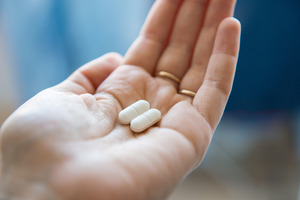
Are you scheduled to have root canal therapy performed to try and save an infected tooth? If so, then you should start planning for the recovery period right now. It’s essential to know what to expect after root canal therapy so that you can make sure that the healing process is as problem-free as possible. Here’s a brief summary of what will happen after the procedure as well as some of the aftercare instructions you’ll need to follow.
What to Expect After Root Canal Therapy is Completed
Your mouth might still be numb for a while after your root canal treatment. Until the numbness wears off, you should avoid eating anything so you don’t accidentally bite your tongue without realizing it.
Once you have regained feeling in your mouth, you are likely to experience discomfort in one form or another. The treated area will be sore, and there might be pain when you bite down on something. You may also notice swelling or bruising.
The discomfort should only last a few days. If it persists longer than that, it’s recommended that you call your dentist to let them know.
The majority of patients are able to return to their normal routines the day after a root canal procedure. However, some people might need more time to rest than normal, particularly if sedation was used to keep dental anxiety under control.
Taking Care of Your Smile After Root Canal Therapy
Pain medications such as ibuprofen or acetaminophen can help you keep your discomfort under control in the days following root canal therapy. Pay close attention to the instructions and follow them to the letter to make sure that you’re getting the proper dosage.
If the area around the tooth is swollen, you can reduce it by applying an ice pack. Remember, you should never use an ice pack for more than 15 minutes at a time.
You need to keep the treated tooth (and the rest of your smile) as clean as possible while your mouth is healing, which naturally means brushing like normal. However, you do need to be very careful around the treatment site.
In terms of diet, you should only be eating soft or liquid foods that require little to no chewing. Avoid anything that could cause problems for your teeth, such as hard peppermints or sticky gum.
Remember, your dentist will be able to give you more personalized aftercare instructions once your root canal therapy is complete. Be sure to speak up if you have any questions or concerns; you should also be ready to get in touch with your dentist right away if there are problems during your recovery.
About the Author
Dr. Walter Mick went to the Ohio State University School of Dentistry and graduated with his Doctor of Dental Surgery in 1987. He has attended a number of continuing education courses and advanced study programs covering complex restorative dentistry. At his Reynoldsburg practice, Mick Family Dental Care, he can use root canal therapy to stop tooth pain. To schedule a consultation with Dr. Mick, visit his website or call (614) 864-4618.
